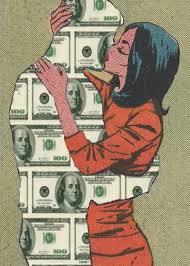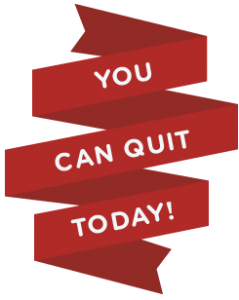Julie A. Fast's Blog, page 24
May 26, 2018
What is Bipolar Mania and What is the ‘Real’ You?

Bipolar Mania: What is the difference between the ‘real’ person and the ‘manic’ person?
There is a simple test you can do to differentiate between manic behavior and ‘average’ behavior.
– Is the manic behavior sudden and completely out of character? For example, when I got very hypomanic for three months in 1987- years before I was diagnosed, everyone said, “What is Julie doing? What is wrong with her? I’m so shocked at her behavior!”
– Is the manic behavior dangerous and the person who is manic can’t see it at all- even when you show them evidence?
– Is the person spending huge amounts of money on trivial things? I know someone who paid tens of thousands of dollars on paintings because she was sure the artist would be famous one day. Lucky artist- unlucky person with mania when she comes out of the episode and sees the bill.
– And finally, does the behavior end when the manic mood swing ends? If so, this is almost always mania and not the ‘real’ person.
There are many ways for family members- and the person with bipolar disorder to see the mania once it’s over- the trick to managing this illness is to use this information to prevent mania in the future. This is why I created the Health Cards. I don’t ever want another summer of destructive hypomania. You can read my hypomania Health Card in the sample cards. It’s an interesting card as anyone with mania who reads it says- I had no idea there were other people like me!
Julie
May 16, 2018
Money Worries and Bipolar Disorder

How is your financial situation? Does bipolar disorder affect your ability to make money? Is your health insurance too expensive? Have you lost your insurance or can’t pay for it? Do you worry constantly about our economy?
These are questions all of us with bipolar disorder are facing these days- either about ourselves or the people we love who have the illness. I know many people who have had to change their lifestyle completely due to what has happened due to the banking and mortgage crisis in 2008 and now we seem to be heading into another financial downswing due to the rising costs and in many cases lack of health care.
One of my friends lost a $15 an hour job and another lost a $300,000 a year job- and you know what- it impacted them similarly. It’s about savings and how a person is set up financially.
I have a friend who has a LOT of money saved blue a big house and child support- what we would consider a cushion for any economic crisis, and yet she lives in constant stress. It’s all about how a person looks at their situation. I often want to say to her, “Do you have ANY idea what it’s like to have a mental illness that affects your ability to work and make money? This is true stress!” But I remind myself that we all have separate challenges and her situation is not my own.
How do those of us with a chronic illness deal with economic stress? Here is one of the ways I am working towards a postive out look.
1. Focus on the people who love me and see that as financial equity. With love comes support.
2. Think of what I HAVE. This is often hard work, especially when the depression is raging. If I go to bed and my head starts to tell me what’s wrong, I say to myself, “This is pointless. I will make a list of what is going well.” Sometimes this is as hard as getting a root canal, but I still practice.
3. Make a pact with friends to have a ‘money talk’ free zone. It’s easy to talk about what is going wrong- especially if the person on the other side is having trouble as well. I simply say, “I know things are difficult now- let’s talk about what we can do about it. ”
Ok. What is your next step? If you are doing well financially, is there someone you can take out to dinner? Buy a movie card, pay a bill?
People with mental health disorders often struggle financially. Pride keeps us from asking for help. We appreciate the help that is offered!
Julie
May 3, 2018
When to Quit What is Triggering Your Bipolar Disorder Mood Swings

A month ago, I had to stop a VIP. (A very important proposal.  ) It was devastating. I cried and felt terrible that I once again was too sick to work. Please know that the community on this page helped me greatly with this and when I did make the decision to take a break from the project, I knew I would not be judged.
) It was devastating. I cried and felt terrible that I once again was too sick to work. Please know that the community on this page helped me greatly with this and when I did make the decision to take a break from the project, I knew I would not be judged.
No one judged. The day after I let my agent and coauthor know I had to stop for awhile, my horrific and I mean mind blowingly horrific anxiety was almost gone. The proposal sample chapter was a trigger.
I was so embarrassed. There is Julie A. Fast- once again having to quit. But…. I remembered what I taught myself years ago- Treat Bipolar First. It doesn’t matter if you have to cancel a wedding, put off getting pregnant, take a leave from a job or quit school for awhile, without management, bipolar will put us in the hospital anyway.
Here is the blog for Bp Magazine that came from that rough month. Tomorrow, I meet with my coauthor Julie Foster of Pohala Clinic – A Place of Healing to resume the project. I have a new plan- to write when she is near and to ask for more help. It took me months to find what might work and even now, I have no idea if I will be able to work. If I can’t, I will take a longer break.
You are more important than work. You are more important than money. Your life is valuable and stopping something that is making you sick is brave.
Julie
Click here to read the blog I wrote for Bp Magazine on the topic.
If you are in or near Portland, Oregon I highly recommend Julie Foster as a prescriber and bipolar disorder health care provider.
April 30, 2018
Depression and Bipolar Depression are Different

When you read a book or go to a webpage or hear someone talk about natural treatments for depression, please know that people with bipolar don’t have depression. We have #bipolar depression and it is quite different.
When people site research that shows depression can be handled with natural treatments, I agree with them- and then I give them the news that is hard to hear. This research doesn’t apply to bipolar depression.
We need to educate GPs and natural practitioners on this topic. Bipolar depression always has the risk of mania. This is why the following natural treatments can’t be used for those of us with bipolar depression unless there is a mood stabilizer present – or someone has the ability to stop mania from going too far, which is rare even for myself.
5HTP
Taurine
GABA
Aswaganda
St. John’s Wort
ADD medications
SSRI and SNRI anti depressants
Light boxes
True Hope/Empower Plus
Energy drinks
Amino acid blends for energy
Cognitive enhancers such as green tea extract
The list is long!
We have bipolar depression. Anything that affects serotonin to help a person with depression get better can make us manic. IT IS A BUMMER! But, we need this info to get to the general public, especially to natural health practitioners.
Julie
April 24, 2018
Bipolar, Cannabis and Psychosis

Bipolar and Cannabis: I’m now in my 8th year of educating our bipolar and mental health community in general about the effects of THC on our brains. At first, I sounded the alarm because I was alarmed by what I saw in my coaching practice! Then, I injured my back, dislocated my hip and got a right brain injury from a biking accident in 2012 and used medical marijuana for pain relief.
I experienced the negative effects of cannabis first hand. I didn’t regulate the THC in the medical marijuana I got from the dispensary well enough and went into a full blown manic and psychotic episode. This was scary as I have bipolar two and have never had a full blown manic episode.
I now research the topic and learn from cannabis experts about the uses of cannabis in the medical world in order to provide up to date information on marijuana …so that people can make their own decisions about cannabis use.
There is more and more research to back up my original worries, but I have also learned how to help people who do continue to use how to stay safe.

THC is a hallucinogenic that greatly increases the risk of psychosis in people with bipolar disorder and schizoaffective disorder. In my experience, it also causes dysphoric mania. I call it a hallucinogenic stimulant.
I teach a harm reduction system to all of my clients (and anyone else who will listen!) that explains the differences between CBD and THC.
Cannabis comes in many forms that vary in THC content. If you have bipolar, I suggest staying away from cannabis in all forms until it is better regulated. I found myself manic and psychotic even from low THC cannabis. I know many will not listen to this and that is ok. The next step is to at least know the risks.
If you are going to use, educate yourself and go for a CBD only product that is lab tested for purity. Its more expensive, but a lot less expensive than a trip to the psych ward. Ask questions when you buy and keep away from street weed as it will almost always be high in THC.
I wish you luck in your journey to finding peace. I wish I could smoke a bowl and deal with my anxiety, but I can’t. The bowl can send me to the hospital. I choose stability.
I am not anti marijuana. It has its uses and for many, doesn’t cause any problems. This is not a witch hunt. It’s a desire for health and a desire to help others find stability.
People without mental health disorders can do what they want- my concern is in our community. If you have bipolar or schizoaffective, THC is not safe for your brain. Please think before you use.
Click here to read more about The link between cannabis and psychosis: Who is most at risk of dangerous side effects from marijuana and why.
Julie
April 10, 2018
Working AROUND Bipolar Disorder: Julie’s New Book Proposal

Writing update. Bipolar inspiration. We can reach our dreams. Bipolar will determine the timeline, but it will NOT determine what we accomplish. We CAN do this. You can see the stress on my face, but darn it, the project will get done. For those who are new to my work, I’m finally writing a new book. It’s a workbook. It is a BIG project and I’m excited. Bipolar disorder could care less about my dreams, goals and excitement. It has been HORRIFIC. But I keep going and you can as well.
Here I am holding the sample chapter draft. I will now put it into a chapter format for a workbook. I have 60 pages of notes for a 20 page chapter- that will include at least four workbook exercises.
Self help writers have to be concise. Our job is to take complex ideas and put them in easy to digest words that lead to change in the reader.
This book proposal has been H E double toothpicks as I used to say in grade school.
What would take the well me a few weeks to write has been months and months of agonizing work.
If you have bipolar disorder, please keep going with your dreams.
For those interested in the writing process- self help books are sold off a big proposal that includes the following:
1. Explanation of the situation that leads to the need for the book.
2. A VERY LARGE marketing plan to let the publishing company know you are a good investment.
3. Sample chapter that shows exactly how the book will look- this will not change much from the actual book.
4. Complete table of contents that lets the publisher know your view for the overall project.
The proposal with everything included is around 60 pages. I know, it’s a crazy process! It’s a business plan for a book. My agent then takes this proposal to the publishing companies and they literally sit around a table and decide if I’m worth the investment of the around $40k it takes to produce a beautiful book.
I’m worth it. Heck yes I’m worth it!
Stick to your project. Remove distractions. Treat bipolar first. Let your timeline be flexible. Be nice to yourself.
Julie
April 9, 2018
Never Give Up: Getting Better When You Have Bipolar Disorder

I’ve been suicidal thousands of times over the past 20 years. I know, that is a shocking sentence! My first suicidal episode was in 1983. My most recent suicidal episode was two weeks ago. I’ve been depressed all of my adult life off and on and the mania… well, let’s just say that for many years I let my mania slide a bit due to how much I got done when the euphoria was raging. I started having dysphoric manic episodes later in life and as I’ve matured, the anxiety is much worse. You would think this would all get me down, but I can be honest with you and say that when I focus on managing this complicated illness and truly focus on having a stable life, I am usually a happy person.
This was not alway the case. I was very sick for many years and never thought I would find relief, but I did. I’m interested in you. How much happiness can you find in life when the bipolar is a regular companion? I want to share what I do to find happiness and stability despite my daily mood swings. Maybe my 20 years of managing this illness can help you or a loved one keep going when hope feels impossible. I’ll start with my mindset.
I learned to separate my real personality from bipolar. I didn’t know who I was for a long time as I have rapid cycling and my stable self rarely stayed around for long. So I went looking for my SELF. Who was I when not depressed, manic, anxious or psychotic? The results surprised me. I found that I was goofey, laid back and not overly concerned with the behaviors of others. My bipolar symptoms created an opposite persona and for many years I thought I was weepy, lonely, obsessive and suspicious or out of control drunk and man crazy. Nope. It was the illness. I think of it this way- how can we know what stability feels like if we don’t figure out who we are outside of bipolar? My first challenge for you is to find your real self and then make that your goal in life. This is your baseline and will help you know when you are sick. For example, when I get the feeling that everyone is out to get me and life is hard, I know that this is not my real self. This is illness. It means I have to stop what I’m doing and treat bipolar. It doesn’t mean I send a mean message to someone I feel is harming me! This helps me stay focused on management instead of self flagellation for behaviors I find embarrassing in myself.

Next, I focus on relationships with stable people who can show you how the other side lives. I can’t be around a lot of ill people. It triggers my illness. Instead, I cultivate relationships with incredibly stable people. What does stability look like in others? They are fair, open minded and they rarely change how they act. Consistency is key. Then, I started asking questions. One of my closet friends is my litmus test for the emotional lives of people without bipolar. I’ve learned that they of course get upset, but not like we do.
Stable people teach me how to determine if what I am experiencing is a normal emotional reaction to an event or a bipolar reaction.
For example, I watched a friend go through a horrific breakup. She didn’t get suicidal, didn’t think of harming herself or others and didn’t stay sad for a few years as I have done after a breakup. She was in pain, but it was within a realistic reaction to the situations. Through her, I have also learned what ecstatic happiness looks like vs. euphoric mania and how people deal with losing a job, moving and traveling. Oh wow, they do NOT go through what we go through. This helps me determine when I need to process real emotions such as grief or jealousy versus when I need help for bipolar disorder.
I can’t tell you that life is easy when you have bipolar, but I can tell you that it can get a lot easier. I know what makes me sick. I know who makes me sick. I know what meds work and don’t work. I know my SELF. This is my goal for you as well.
Julie
April 2, 2018
How to Stop an Anxiety Mood Swing in the Middle!

Are you the middle of a mood swing? Do you want it to stop? Let’s do this together.
1. Identify the mood swing. Is is depression, mania, psychosis, anxiety, irritation and anger or a focus issue?
2. Is there an obvious trigger?
3. Have you experienced this before?
4. If yes, what didn’t work in the past to get you out of the mood swing?
5. If yes, what did work to get you out of the mood swing?
That is always my first stage plan… what is actually going on?
I will do this process with my current mood swing:
I’m outside at one of my favorite work spots. I came here to work. I can’t work.
1. It is anxiety. I know the signs. Shortness of breath. A slight feeling of fear. Worry that I will never get this project done. Feeling worthless and dumb for not being able to work. Cold. Shakey. Frustrated. Upset.
2. Is there a trigger- yes, it is 100% the sample chapter I am writing for my book proposal.
3. Have I experienced this before? Oh heck yes and I am SICK of it. But, I now know that the book project is a trigger. For awhile, I was worried I was simply having more anxiety in life in general. This is not the case. The anxiety is specific to this project- so it’s moving into the territory of being a phobia.
4. What didn’t work in the past? Forcing myself to work when I can’t. Being mean to myself. Deconstructing my work problems. Being mean to myself… being mean to myself. Getting down on myself. Asking What on earth is wrong with you Julie! Sitting in the same place and trying to work when I can’t. Forcing myself to do something that is not possible.
5. What did work? Breathing. I realize I am hunching my shoulders, my mouth is pinched.. I’m upset and it is surely on my face. I probably look like an angry woman and I’m not. I will take a pic of my face right in this anxious moment.
I am now going to breathe. As Anthony Robbins often says- how we hold our body affects our mood. I am going to release my shoulders. Think of the movie I’m seeing this afternoon. Smile when I don’t feel like it. I’m doing some tapping on my relaxing points.
Breathe and let’s see the difference.
We can stop mood swings in the middle. It will at least put us on a different path to a better afternoon and evening.
Julie
March 30, 2018
World Bipolar Day is Here! Yay!
We have come so far. In 1995, there was confusion on whether to call this illness #manic depression or #bipolar disorder. Now we have a #WorldBipolarDay. This is progress! #BipolarStrong

#WorldBipolarDay Julie A. Fast Q&A: Bipolar Disorder Hypersexuality vs. Trauma

Julie, I used to look back on some things and simply think they were signs of me acting out because of childhood sexual abuse but, in hindsight, it also looks a lot like manic phases and the risky behaviour associated with that. Is it possible to distinguish between the two or is it more a case of the two colliding and the severity of the episode? N.
Hi N. I’m going to get on my soap box here. We talk so much about trauma today- and that is very, very important, but I can’t stress this enough. Bipolar disorder is not and never has been trauma based. Our hyper sexuality is NOT from abuse. There is an enormous difference from acting out due to sexual abuse and the hyper sexuality that comes with bipolar and I am so glad you asked this question in the way you did… it is easy to tell the difference.
Mania is mania. It is not about abuse and it will always look the same. You can’t have mania without a change in energy which means a change in sleep.
Let’s deconstruct this so that the whole trauma vs. bipolar issue can be talked about rationally.
Mania doesn’t change. Yes, a person can be hyper sexual during a mania, but they will always, no exceptions have other signs of mania as well. For example, when I am hyper sexual during a euphoric manic episode, I will always be full of energy without needing to sleep. No exceptions. There is no mania with tiredness. This is not insomnia. This is literally not needing to sleep. This fuels the hyper sexuality. I will talk more rapidly, be goal oriented and I will look manic. My judgement will be off in all areas of life, not just the sexuality. So, I will not be able to deal with my job and be hyper sexual. I will be hyper sexual at my job as well as at da club!
I know a bit about sexual trauma behaviors simply from my past work and can say that acting out sexually from trauma does not look like mania. It looks like acting out sexually. Being overly sexual is not the same thing as manic hyper sexuality.
Young people who are abuse will have changes in sexual behavior, but they will not be manic.
Your question is excellent because yes, you have a dilemma if you don’t deconstruct the past with a knowledge of what mania actually looks like.
If you were hyper sexual due to mania, you would have other signs of mania- climbing out the window at 2 AM to meet someone and then sneaking back home and not being tired the next day is more like mania. Not being guilty at all is mania. NO SHAME is mania.
If you are hyper sexual and are doing this due to abuse, the emotions and fall out of your behavior will be different. You will feel shame and self loathing or defiance or any emotion that might show up from being abused.
We don’t have these emotions when manic and hyper sexual. We are ANIMAL. All amygdala. There is no connection between mania and abuse in my opinion.
Now, if you have mania already and then are sexually abused, can it affect the mania. Of course it can. But then we are talking about triggers and not the origin of hyper sexuality.
Let me know if this helps and feel free to ask me more specific questions if needed!
Bipolar is an illness. Trauma is a situation. They are treated differently. Good luck to you.
Julie
#WorldBipolarDay #BipolarStrong
Julie A. Fast's Blog
- Julie A. Fast's profile
- 67 followers



